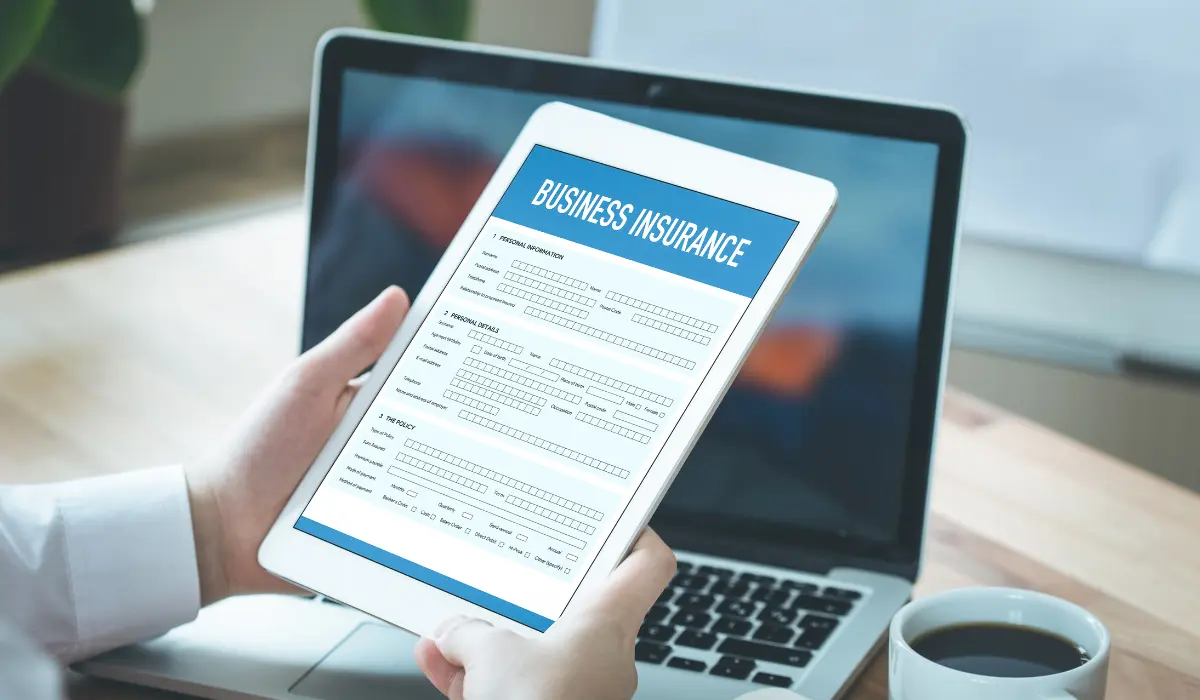Running a business can be an exciting adventure, but it also comes with its fair share of risks. Businesses face potential threats such as lawsuits, property damage, employee injuries, and reputational damage, which can result in financial loss or even bankruptcy.
Corporate insurance acts as a sturdy shield, providing businesses with protection and peace of mind to operate with confidence in uncertain times. The global liability insurance market is on the rise, with a projected value of $432.81 billion by 2031, growing at a CAGR of 5.7% from 2022 to 2031 after being valued at $252.34 billion in 2021.
In this article, we’ll explore different types of corporate insurance, with a spotlight on media liability insurance and why it’s crucial for businesses in the media, advertising, and entertainment industries.
5 Types of Business/Corporate Insurance:
1. General Liability Insurance: Your First Line of Defense
When it comes to corporate insurance, General Liability Insurance is often the first line of defense for businesses. It covers the costs associated with bodily injury, property damage, or advertising injury claims arising from business operations.
For instance, if a customer slips and falls in your store or if your advertising inadvertently leads to a copyright infringement claim, General Liability Insurance can help protect your business from potential financial losses.
See Also: Unlock the Potential of Your Insurance Business with Effective Marketing Tools
2. Media Liability Insurance: Safeguarding Your Creative Endeavors
For businesses in the media, advertising, and entertainment industries, Media Liability Insurance is a critical component of their risk management strategy. It provides coverage for claims arising from alleged acts of defamation, libel, slander, copyright infringement, or other media-related liabilities.
With the proliferation of digital media and online content creation, the risk of facing costly legal battles related to media-related liabilities has increased significantly.
Media liability insurance helps protect businesses from potential financial losses, legal expenses, and reputational damage resulting from allegations of wrongful acts in creating, distributing, or disseminating media content.
Providers of corporate insurance recognize that one size does not fit all when it comes to media liability insurance. They offer a Multi-Media Professional Liability policy specifically designed to address the unique exposures faced by businesses in the media industry, such as multi-media content providers, online publishers, content-oriented websites, publishing companies, advertising agencies, broadcasters, and others.
This policy provides flexibility and customization options, allowing businesses to tailor their coverage to best suit their individual needs.
3. Property Insurance: Protecting Your Physical Assets
While media liability insurance focuses on protecting intangible assets, such as creative works and intellectual property, property insurance is designed to safeguard physical assets, such as buildings, equipment, inventory, and other tangible property. Property Insurance provides coverage for damages or losses resulting from covered perils, such as fire, theft, vandalism, or natural disasters.
It is evident that Property Insurance plays a crucial role in a business’s risk management strategy, considering the average property damage claim payout of $13,804 from 2016-2020, with fire and lightning claims having the highest average payout of $77,340.
This highlights the significance of having Property Insurance in place to effectively protect a business’s physical assets against potential financial losses. This type of insurance ensures that a business’s physical assets are appropriately safeguarded, taking into account the potential financial losses that may be incurred.
4. Business Interruption Insurance: Keeping Your Business Afloat
Business Interruption Insurance comes into play when unexpected disruptions, such as natural disasters, fires, or other unforeseen events, bring businesses to a standstill, resulting in lost revenue and additional expenses.
This type of insurance is designed to provide coverage for lost income, ongoing expenses, and additional costs incurred during a period of business interruption due to covered perils, helping them weather the storm and resume operations as soon as possible, minimizing the impact on their bottom line.
Startling statistics indicate that a staggering 40% of businesses fail to reopen after a disaster due to inadequate or miscalculated business interruption insurance. According to the Small Business Administration (SBA) of the United States, over 90% of businesses do not survive beyond two years after being affected by a disaster.
These figures underscore the crucial significance of having sufficient Business Interruption Insurance in place to safeguard businesses against the severe financial repercussions of unforeseen disruptions.
5. Workers’ Compensation Insurance: Caring for Your Employees
Another important type of corporate insurance is Workers’ Compensation Insurance. This coverage is designed to protect businesses from the financial burden of employee injuries or illnesses that occur in the workplace. It provides medical benefits, wage replacement, and other related expenses for employees who are injured or become ill while performing their job duties.
Related: How Workers’ Compensation Insurance Helps Staffing Companies Build a Stronger Workforce
Conclusion
Corporate insurance is a crucial aspect of risk management for businesses of all sizes and industries. It provides protection and peace of mind, allowing businesses to operate with confidence in the face of uncertainties.
General Liability Insurance, Media Liability Insurance, Property Insurance, Workers’ Compensation Insurance, and Business Interruption Insurance are just a few examples of the types of coverage available to businesses to safeguard against potential financial losses and protect their assets, employees, and operations.
Harry O’Neill writes about all things tech, SaaS, and marketing at Solution Suggest. He’s known for turning complex ideas into clear, actionable insights. With experience working alongside top-tier companies worldwide, he helps brands connect with their audiences through content that drives real results.





















